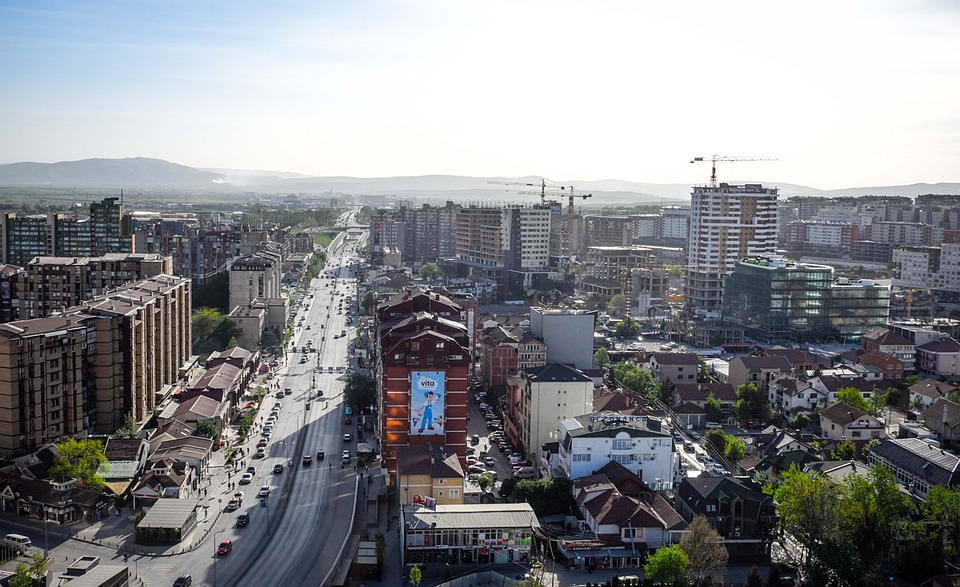A few nations in the Balkan region are growing concerned regarding the ongoing conflict in Russia as it continues its offensive on Ukraine. The nations of Kosovo, Bosnia, and Herzegovina are now calling for membership in the NATO alliance.
The leaders of Kosovo, Bosnia, and Herzegovina are calling to join the alliance, citing that joining NATO would preserve security in the region. This comes as the ongoing invasion of Ukraine has led to fears that the war may spread out into the Western Balkan region. To note, Russia’s advances in the region have been widely documented over the years and included the attempts to stage a coup in Montenegro and North Macedonia before they became NATO members in 2017 and 2020.
Bosnian defense minister Sifet Podzic said the country is participating in the Membership Action Plan, which is believed to be the “last step before gaining membership” in the alliance. However, much like with Ukraine, Russia has opposed Bosnia’s aspiration to join the alliance. The Russian embassy in Bosnia’s capital Sarajevo said last year that Moscow may respond should the nation proceed with joining the alliance.
Kosovo President Vjosa Osmani viewed the Russian ambassador’s remarks in an interview that aired on Bosnian television as Russia having a “destructive interest in our region.”
“They especially have an interest in attacking Kosovo, Bosnia, and Herzegovina and to some extent also Montenegro,” Osmani told Al Jazeera.
Bosnia and Kosovo have suffered killings by Serbian forces back in the 1990s during the administration of Serbian President Slobodan Milosevic, and both nations have sought to join the NATO alliance. Both nations are also the last non-NATO members in the region aside from Serbia. Serbia sees NATO as an enemy.
Back in March, NATO allies have agreed to ramp up the alliance’s eastern flank with four additional battle units and send further assistance to Ukraine as it continues its resistance against Russian forces.
“Today, NATO leaders agreed to reset our deterrence and defense for the longer term to face a new security reality,” NATO Secretary-General Jens Stoltenberg told reporters at the time following a meeting in Brussels.



 Trump Floats “Friendly Takeover” of Cuba as Rubio Reportedly Engages in Talks
Trump Floats “Friendly Takeover” of Cuba as Rubio Reportedly Engages in Talks  Trump Launches Operation Epic Fury: U.S. Strikes on Iran Mark High-Risk Shift in Middle East
Trump Launches Operation Epic Fury: U.S. Strikes on Iran Mark High-Risk Shift in Middle East  Australia Rules Out Military Involvement in Iran Conflict as Middle East Tensions Escalate
Australia Rules Out Military Involvement in Iran Conflict as Middle East Tensions Escalate  Trump Warns Iran as Gulf Conflict Disrupts Oil Markets and Global Trade
Trump Warns Iran as Gulf Conflict Disrupts Oil Markets and Global Trade  HHS Adds New Members to Vaccine Advisory Panel Amid Legal and Market Uncertainty
HHS Adds New Members to Vaccine Advisory Panel Amid Legal and Market Uncertainty  Germany and China Reaffirm Open Trade and Strategic Partnership in Landmark Beijing Visit
Germany and China Reaffirm Open Trade and Strategic Partnership in Landmark Beijing Visit  Marco Rubio to Brief Congress After U.S.-Israeli Strikes on Iran
Marco Rubio to Brief Congress After U.S.-Israeli Strikes on Iran  Macron Urges Emergency UN Security Council Meeting as US-Israel Strikes on Iran Escalate Middle East Tensions
Macron Urges Emergency UN Security Council Meeting as US-Israel Strikes on Iran Escalate Middle East Tensions  Argentina Tax Reform 2026: President Javier Milei Pushes Lower Taxes and Structural Changes
Argentina Tax Reform 2026: President Javier Milei Pushes Lower Taxes and Structural Changes  Russia Signals Openness to U.S. Security Guarantees for Ukraine at Geneva Peace Talks
Russia Signals Openness to U.S. Security Guarantees for Ukraine at Geneva Peace Talks  Israel Launches Fresh Strikes on Iran After Death of Supreme Leader Ayatollah Khamenei
Israel Launches Fresh Strikes on Iran After Death of Supreme Leader Ayatollah Khamenei  Pentagon Leaders Monitor U.S. Iran Operation from Mar-a-Lago
Pentagon Leaders Monitor U.S. Iran Operation from Mar-a-Lago  Iran Supreme Leader Ayatollah Ali Khamenei Killed in Israeli, U.S. Strikes: Reuters
Iran Supreme Leader Ayatollah Ali Khamenei Killed in Israeli, U.S. Strikes: Reuters  Trump Says U.S. Combat Operations in Iran Will Continue Until Objectives Are Met
Trump Says U.S. Combat Operations in Iran Will Continue Until Objectives Are Met  Trump Announces U.S. Strikes on Iran Navy as Conflict Escalates
Trump Announces U.S. Strikes on Iran Navy as Conflict Escalates  U.S. Lawmakers Question Trump’s Iran Strategy After Joint U.S.-Israeli Strikes
U.S. Lawmakers Question Trump’s Iran Strategy After Joint U.S.-Israeli Strikes  Israel Declares State of Emergency as Iran Launches Missile Attacks
Israel Declares State of Emergency as Iran Launches Missile Attacks 































